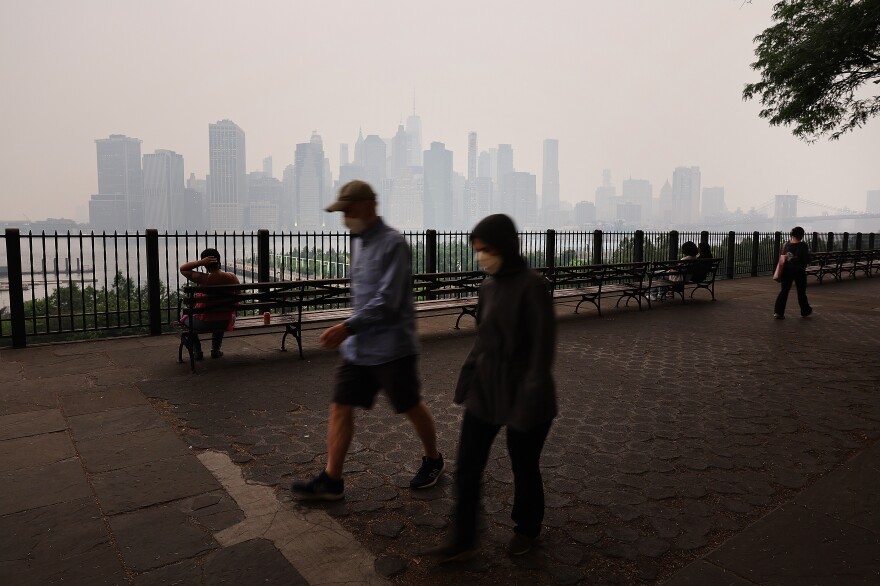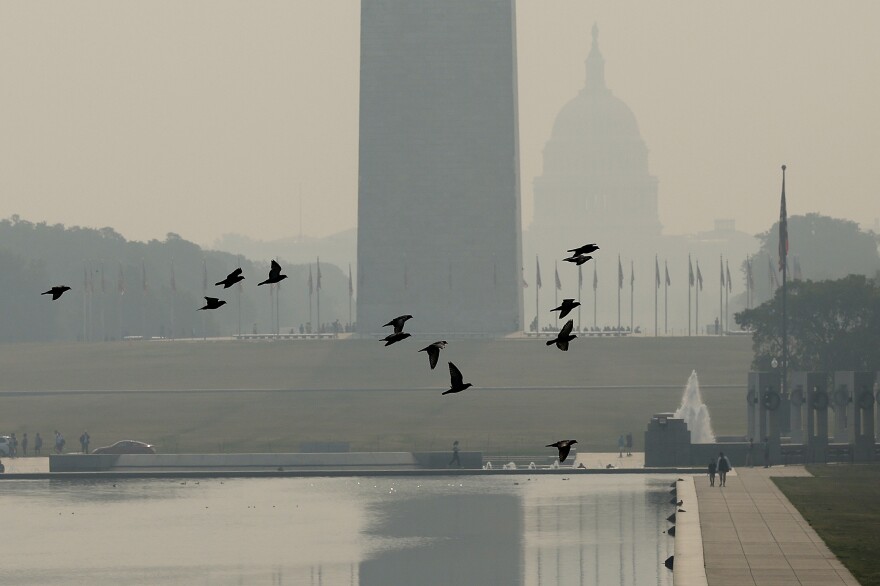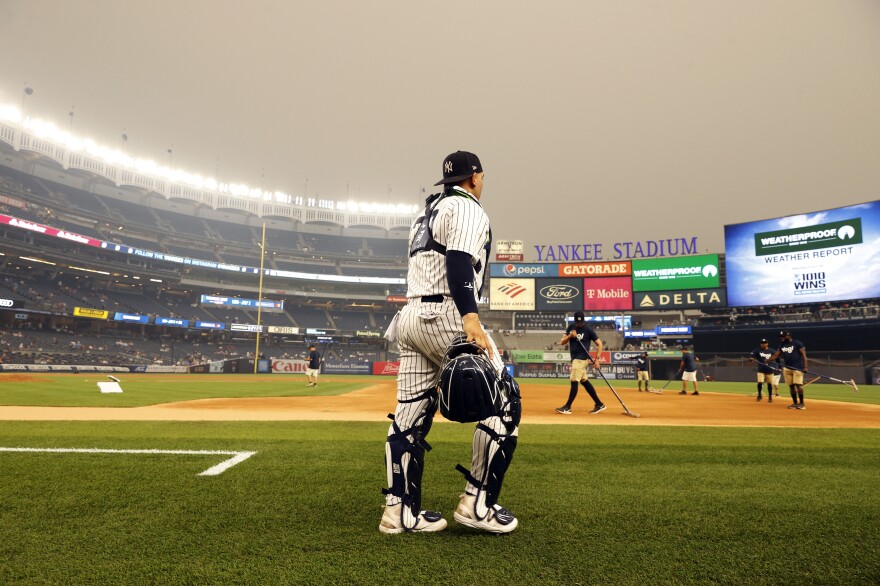Updated June 7, 2023 at 4:52 PM ET
Millions of people along the East Coast and further inland woke up to a cloud of hazy air Wednesday morning, after smoke from rampant wildfires in Canada floated south across the border and blanketed large swaths of the U.S.
Some of the worst air quality was recorded in the Great Lakes region and in Pennsylvania, New York, New Jersey and the Washington, D.C., metro area.
But authorities from New England to as far south as Georgia were warning people to beware of poor air quality and the health problems that can result from breathing in too much smoke.
The Federal Aviation Administration issued a full ground stop at New York's LaGuardia Airport early Wednesday afternoon, citing low visibility. The ground stop was later lifted, but average delays of nearly 2 hours were reported.
In addition to reduced visibility and a smoky smell, public health experts warned that poor air quality could be especially harmful to people with heart and lung disease, people who are pregnant, the elderly and young children.

Officials in some areas were urging people to stay inside as much as they can, avoid travel if possible and refrain from any exercise or strenuous activity.
Peter DeCarlo, an associate professor of environmental health and engineering at Johns Hopkins University, told NPR that weather conditions in the U.S. were making it possible for wildfire smoke to spread over the region.
"Unless more fires start burning, I don't expect the concentrations to go up too much higher," DeCarlo said. "I think the next couple days we're going to see a shift in that weather pattern [which will] start to push that smoke away from where we are."

The poor conditions had widespread impacts.
New York City's public school system, the largest in the U.S., said Wednesday that it was canceling all outdoor activities. Washington, D.C., public schools did the same, scrapping recess, outdoor physical education classes and other events outside.
New Jersey closed state offices early and the White Sox-Yankees game scheduled for Wednesday at Yankee Stadium was postponed.
Why is this happening, anyway?
Dozens of wildfires are burning in the Canadian province of Québec, many of which have yet to be contained by firefighters.
Canada has been experiencing a particularly intense wildfire season, and many of the latest fires in Québec are so out of control that they're sending smoke south across the border with the U.S.
On Tuesday, the National Weather Service said air quality across the U.S. had "plummeted," and by Wednesday morning images of grayish smoky air were ubiquitous in the news and across social media.

Experts say wildfire seasons are becoming longer and the blazes are burning more acreage, thanks in part to the hot and dry conditions created by climate change.
The United Nations warned last year that a warming climate and land use changes would lead to more wildfires globally.
"Make no mistake," New Jersey Gov. Phil Murphy said in a tweet Wednesday, "from the wildfires in Canada to those cropping up with increasing frequency and severity in our own backyard, these extreme weather events are tangible — and devastating — evidence of the intensifying climate crisis."
"This is something that I think even for folks who are not involved to kind of pay attention to," Jeff Schlegelmilch, director of the National Center for Disaster Preparedness at Columbia University, told NPR this week, "because this is the type of situation that we're expecting that we're going to see more of — not less of — into the future."
Rachel Treisman and Emily Olson contributed to this story.
Copyright 2023 NPR. To see more, visit https://www.npr.org.






